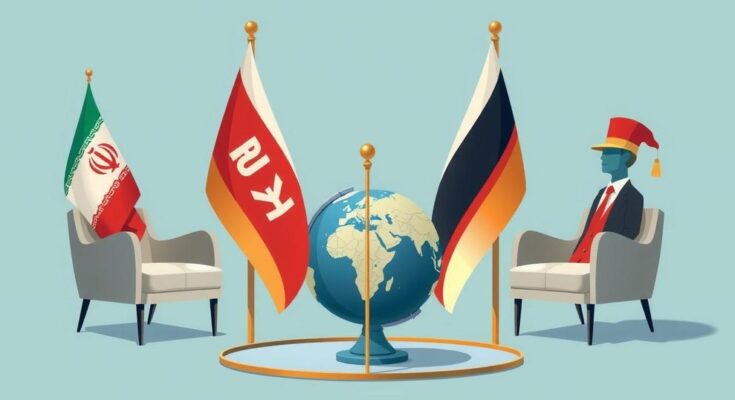Iran summoned the German and British envoys, protesting their countries’ support for extending the UN human rights probe. The Iranian Foreign Ministry criticized the resolution, citing historical grievances and recent commitments under the JCPOA. The UN mission has documented significant evidence of human rights violations, particularly against women, amid Tehran’s rebuke of its findings.
On March 20, 2025, Iran’s Foreign Ministry summoned the German ambassador and the British chargé d’affaires. This action was initiated by Forouzandeh Vadiati, the Director General of the Women and Human Rights Department, in response to their nations’ attempts to extend the mandate of the UN Fact-Finding Mission.
Vadiati characterized the resolution as “irresponsible and provocative,” asserting that Germany had previously supplied chemical weapons to Iraq during the Iran-Iraq War and accusing Britain of past interference in Iran’s oil sector. She stated that their governments were not in a position to advocate for human rights.
In her discussions with the envoys, Vadiati also highlighted the British Foreign Secretary’s remarks regarding European nations not fulfilling their commitments under the Joint Comprehensive Plan of Action (JCPOA). She portrayed these nations’ actions as consistent with the United States’ aggressive policies towards Iran, which include maximum pressure and sanctions.
Regarding Iran’s nuclear advancements, Vadiati affirmed that the program is peaceful and subject to rigorous oversight by the International Atomic Energy Agency (IAEA), negating the validity of “politically motivated accusations” against it.
The UN Fact-Finding Mission on Iran was established in November 2022 to investigate alleged human rights abuses, particularly against women and children. The mission has presented extensive evidence, accumulating over 38,000 documents and conducting 281 interviews, despite facing challenges with Iranian cooperation.
Tehran has dismissed the mission’s findings as biased; however, the latest report presented at the Human Rights Council indicated that Iran continues to impose restrictions on women’s rights and suppress dissent, contradicting President Masoud Pezeshkian’s pre-election promise to reform hijab enforcement, thus revealing an ongoing pattern of state oppression against gender equality and human rights.
In conclusion, Iran’s summoning of the German and British ambassadors reflects its strong discontent with international scrutiny of its human rights record. The Foreign Ministry’s criticisms underscore the complexities surrounding Iran’s external relations and domestic policies. The ongoing appeal of the UN Fact-Finding Mission is met with resistance from Tehran, while the international community continues to push for accountability regarding human rights violations.
Original Source: shafaq.com




